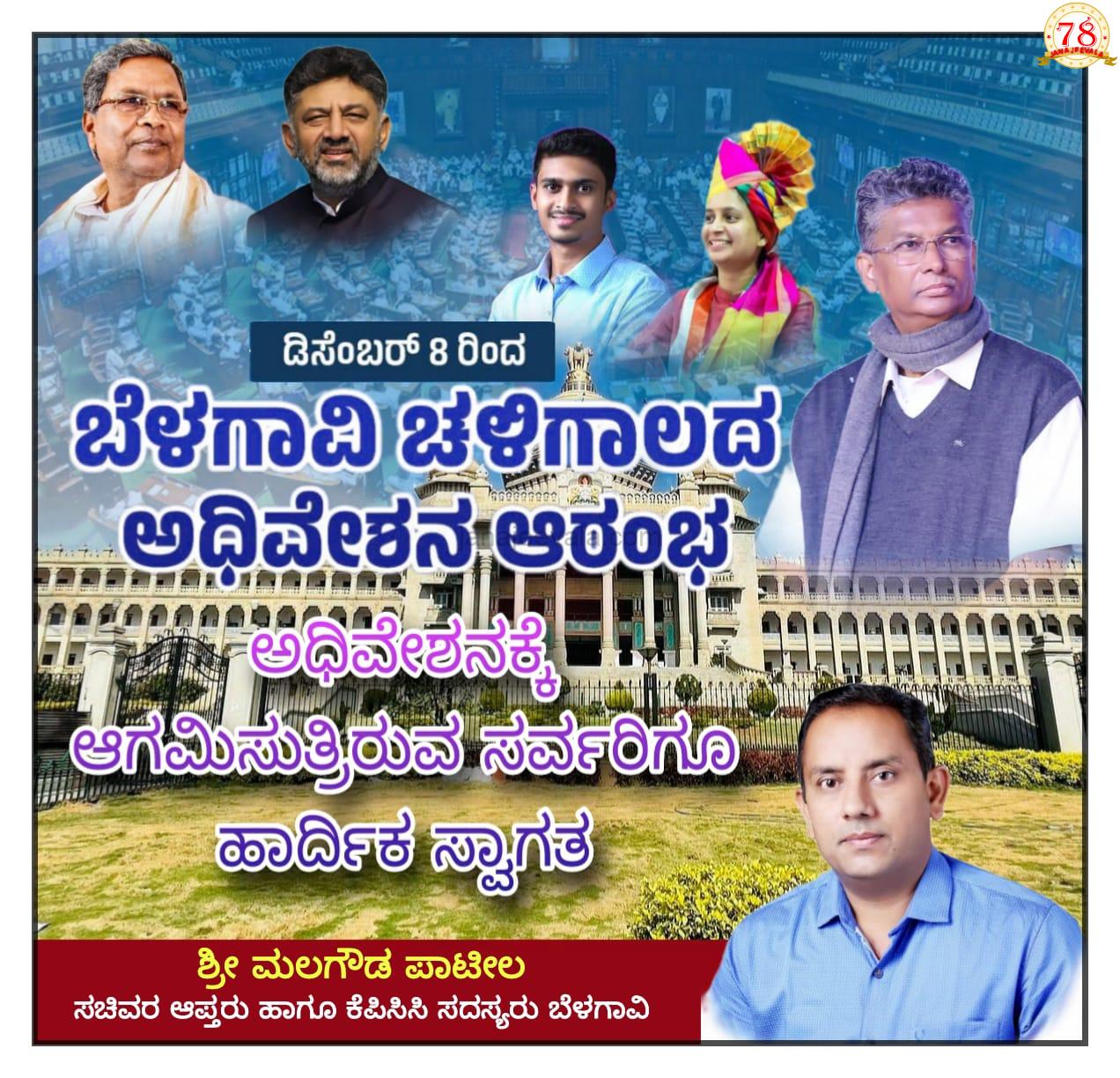ನವದೆಹಲಿ: ಕನಿಷ್ಠ ಹಾಜರಾತಿ ಕೊರತೆಯ ಕಾರಣದಿಂದ
ದೇಶದ ಯಾವುದೇ ಕಾನೂನು ವಿದ್ಯಾರ್ಥಿಯನ್ನು ಪರೀಕ್ಷೆಗೆ ಕೂರುವುದಕ್ಕೆ ತಡೆ ಹಿಡಿಯಬಾರದು ಎಂದು ದೆಹಲಿ ಹೈಕೋರ್ಟ್ ಸೋಮವಾರ ಮಹತ್ವದ ತೀರ್ಪು ನೀಡಿದೆ.
2016 ರಲ್ಲಿ ಹಾಜರಾತಿ ಸಮಸ್ಯೆಯಿಂದಾಗಿ ಆತ್ಮಹತ್ಯೆ ಮಾಡಿಕೊಂಡ ಕಾನೂನು ವಿದ್ಯಾರ್ಥಿ ಸುಶಾಂತ್ ರೋಹಿಲ್ಲಾ ಅವರ ಪ್ರಕರಣದ ಸ್ವಯಂ ಪ್ರೇರಿತ ಅರ್ಜಿಯನ್ನು ಇತ್ಯರ್ಥಪಡಿಸಿದ ನ್ಯಾಯಾಲಯ ಈ ಮಹತ್ವದ ಆದೇಶವನ್ನು ನೀಡಿದೆ. ಹಾಜರಾತಿ ನಿಯಮಗಳು ವಿದ್ಯಾರ್ಥಿಗಳಿಗೆ ಮಾನಸಿಕ ಆಘಾತವನ್ನು ನೀಡುವುದಲ್ಲದೆ, ಸಾವಿನಂಥ ಕಠಿಣ ನಿರ್ಧಾರಕ್ಕೆ ಕಾರಣವಾಗಬಹುದು ಎಂದು ನ್ಯಾಯಪೀಠ ಹೇಳಿದೆ.
ಬಾರ್ ಕೌನ್ಸಿಲ್ ಆಫ್ ಇಂಡಿಯಾ (ಬಿಸಿಐ)ಗೆ ಕಡ್ಡಾಯ ಹಾಜರಾತಿ ಮಾನದಂಡಗಳನ್ನು ಮಾರ್ಪಡಿಸುವಂತೆ ಹೈಕೋರ್ಟ್ ಇದೇ ವೇಳೆ ನಿರ್ದೇಶನ ನೀಡಿದ್ದು, ವಿದ್ಯಾರ್ಥಿಗಳ ಜೀವನ ಮತ್ತು ಮಾನಸಿಕ ಆರೋಗ್ಯವನ್ನು ರಕ್ಷಿಸಲು ಸಂಬಂಧಪಟ್ಟವರೊಂದಿಗೆ ತ್ವರಿತ ಸಮಾಲೋಚನೆ ನಡೆಸಲು ಸೂಚಿಸಿದೆ
ಶೈಕ್ಷಣಿಕ ನ್ಯಾಯಸಮ್ಮತತೆಯನ್ನು ಉಲ್ಲೇಖಿಸಿ, ಹಾಜರಾತಿ ಕೊರತೆಯ ಕಾರಣದಿಂದಾಗಿ ಕಾನೂನು ವಿದ್ಯಾರ್ಥಿಗಳಿಗೆ ಪರೀಕ್ಷಾ ಪ್ರವೇಶವನ್ನು ನಿರಾಕರಿಸಲಾಗುವುದಿಲ್ಲ ಎಂದು ನ್ಯಾಯಾಲಯ ಮಹತ್ವದ ತೀರ್ಪು ನೀಡಿದೆ.
ಅಮಿಟಿ ಕಾನೂನು ಶಾಲೆಯಲ್ಲಿ ಮೂರನೇ ವರ್ಷದ ಕಾನೂನು ವಿದ್ಯಾರ್ಥಿ ಸುಶಾಂತ್ ರೋಹಿಲ್ಲಾ ಆತ್ಮಹತ್ಯೆ ಮಾಡಿಕೊಂಡು ಸುಮಾರು ಒಂಬತ್ತು ವರ್ಷಗಳು ಕಳೆದಿವೆ. ಇಪ್ಪತ್ತರ ಹರೆಯದ ಆ ಯುವಕ ತನ್ನನ್ನು ತಾನು “ವಿಫಲ” ಎಂದು ಕರೆದುಕೊಂಡ ಸರಳ ಟಿಪ್ಪಣಿಯನ್ನು ಬಿಟ್ಟು ಹೋಗಿದ್ದಾನೆ – ಇವೆಲ್ಲವೂ ಕಡ್ಡಾಯ ಹಾಜರಾತಿ ಅವಶ್ಯಕತೆಗಳನ್ನು ಪೂರೈಸಲು ಸಾಧ್ಯವಾಗದ ಕಾರಣ ಮತ್ತು ತನ್ನ ಸೆಮಿಸ್ಟರ್ ಪರೀಕ್ಷೆಗಳಿಗೆ ಕುಳಿತುಕೊಳ್ಳುವುದನ್ನು ನಿಷೇಧಿಸಲಾಗಿದೆ. ವಿದ್ಯಾರ್ಥಿ ಆತ್ಮಹತ್ಯೆಯ ಮತ್ತೊಂದು ದುರಂತ ಕಥೆಯಂತೆ ತೋರುತ್ತಿದ್ದದ್ದು ಈಗ ಭಾರತದಲ್ಲಿ ಕಾನೂನು ಶಿಕ್ಷಣವನ್ನು ನಾವು ಹೇಗೆ ಸಮೀಪಿಸುತ್ತೇವೆ ಎಂಬುದನ್ನು ಮೂಲಭೂತವಾಗಿ ಬದಲಾಯಿಸಬಹುದಾದ ತೀರ್ಪಿನಲ್ಲಿ ಅಂತ್ಯಗೊಂಡಿದೆ.
ನವೆಂಬರ್ 3, 2025 ರಂದು, ದೆಹಲಿ ಹೈಕೋರ್ಟ್ ಅನೇಕರು ಹೆಗ್ಗುರುತು ತೀರ್ಪು ಎಂದು ಕರೆಯುವ ತೀರ್ಪನ್ನು ನೀಡಿತು: ಹಾಜರಾತಿ ಕೊರತೆಯ ಆಧಾರದ ಮೇಲೆ ಭಾರತದಲ್ಲಿ ಯಾವುದೇ ಕಾನೂನು ವಿದ್ಯಾರ್ಥಿಯನ್ನು ಪರೀಕ್ಷೆಗಳಿಂದ ಬಂಧಿಸಲಾಗುವುದಿಲ್ಲ ಅಥವಾ ಶೈಕ್ಷಣಿಕ ಪ್ರಗತಿಯನ್ನು ತಡೆಯಲು ಸಾಧ್ಯವಿಲ್ಲ. ನ್ಯಾಯಮೂರ್ತಿ ಪ್ರತಿಭಾ ಎಂ. ಸಿಂಗ್ ಮತ್ತು ನ್ಯಾಯಮೂರ್ತಿ ಅಮಿತ್ ಶರ್ಮಾ ಅವರನ್ನೊಳಗೊಂಡ ಪೀಠವು ಕೇವಲ ಆದೇಶವನ್ನು ನೀಡಲಿಲ್ಲ – ಅವರು ದಶಕಗಳಿಂದ ನಮ್ಮ ಶಿಕ್ಷಣ ಸಂಸ್ಥೆಗಳನ್ನು ನಿಯಂತ್ರಿಸುತ್ತಿರುವ ತತ್ವಶಾಸ್ತ್ರವನ್ನೇ ಪ್ರಶ್ನಿಸಿದರು.
ಕಾನೂನು ಕ್ರಾಂತಿಗೆ ನಾಂದಿ ಹಾಡಿದ ದುರಂತ
ಆಗಸ್ಟ್ 10, 2016 ಕ್ಕೆ ಹಿಂದಿರುಗಿಬೇಕು. ಸುಶಾಂತ್ ರೋಹಿಲ್ಲಾ ದೇಶಾದ್ಯಂತ ಸಾವಿರಾರು ಕಾನೂನು ವಿದ್ಯಾರ್ಥಿಗಳಂತೆ ಇದ್ದರು – ತರಗತಿಗಳು, ನಿಯೋಜನೆಗಳು, ವೈಯಕ್ತಿಕ ಸವಾಲುಗಳು ಮತ್ತು ಹಾಜರಾತಿ ಅವಶ್ಯಕತೆಗಳನ್ನು ಪೂರೈಸುವ ನಿರಂತರ ಆತಂಕ. ಅವರ ಸ್ನೇಹಿತ ಭಾರತದ ಆಗಿನ ಮುಖ್ಯ ನ್ಯಾಯಮೂರ್ತಿಗೆ ಬರೆದ ಪತ್ರದ ಪ್ರಕಾರ, ಸುಶಾಂತ್ ಕಡಿಮೆ ಹಾಜರಾತಿಯನ್ನು ಎದುರಿಸುತ್ತಿರಲಿಲ್ಲ; ಅವರು ಕಾಲೇಜು ಅಧಿಕಾರಿಗಳು ಮತ್ತು ಅಧ್ಯಾಪಕರಿಂದ ಕಿರುಕುಳಕ್ಕೆ ಒಳಗಾಗಿದ್ದರು ಎಂದು ಆರೋಪಿಸಲಾಗಿದೆ. ಕಾಲೇಜು ಅವರನ್ನು ಇಡೀ ಶೈಕ್ಷಣಿಕ ವರ್ಷವನ್ನು ಪುನರಾವರ್ತಿಸುವಂತೆ ಒತ್ತಾಯಿಸಿತು ಮತ್ತು ಅವರು ಇನ್ನೂ ಹಾಜರಾತಿ ಮಾನದಂಡಗಳನ್ನು ಪಾಲಿಸದಿದ್ದಾಗ, ಅವರನ್ನು ಸೆಮಿಸ್ಟರ್ ಪರೀಕ್ಷೆಗಳಿಂದ ನಿರ್ಬಂಧಿಸಲಾಯಿತು.
ಒತ್ತಡ ಅಸಹನೀಯವಾಯಿತು. ಆ ಅದೃಷ್ಟಶಾಲಿ ಆಗಸ್ಟ್ ದಿನದಂದು, ಸುಶಾಂತ್ ದೆಹಲಿಯ ಸರೋಜಿನಿ ನಗರದಲ್ಲಿರುವ ತಮ್ಮ ಮನೆಯಲ್ಲಿ ನೇಣು ಬಿಗಿದುಕೊಂಡರು. ಅವರ ಸಾವು ಕೇವಲ ವೈಯಕ್ತಿಕ ದುರಂತವಲ್ಲ – ಇದು ನಮ್ಮ ಶಿಕ್ಷಣ ವ್ಯವಸ್ಥೆಯನ್ನು ಕಾಡುತ್ತಿರುವ ವ್ಯವಸ್ಥಿತ ಸಮಸ್ಯೆಯ ಸಂಕೇತವಾಯಿತು. ಸುಶಾಂತ್ ಅವರ ಸ್ನೇಹಿತನ ಪತ್ರ ಅರ್ಜಿಯ ನಂತರ, ಸುಪ್ರೀಂ ಕೋರ್ಟ್ ಸೆಪ್ಟೆಂಬರ್ 2016 ರಲ್ಲಿ ಈ ವಿಷಯವನ್ನು ಗಮನದಲ್ಲಿಟ್ಟುಕೊಂಡಿತು. ಮಾರ್ಚ್ 2017 ರ ಹೊತ್ತಿಗೆ, ಪ್ರಕರಣವನ್ನು ದೆಹಲಿ ಹೈಕೋರ್ಟ್ಗೆ ಸ್ವಯಂ ಪ್ರೇರಿತ ಅರ್ಜಿಯಾಗಿ ವರ್ಗಾಯಿಸಲಾಯಿತು. ನಂತರದ ಘಟನೆಗಳು ವರ್ಷಗಳ ಕಾಲ ಚರ್ಚೆ, ಪಾಲುದಾರರ ಸಮಾಲೋಚನೆಗಳು ಮತ್ತು ನಮ್ಮ ಕಠಿಣ ಹಾಜರಾತಿ ಮಾನದಂಡಗಳು ಯಾವುದೇ ನಿಜವಾದ ಶೈಕ್ಷಣಿಕ ಉದ್ದೇಶವನ್ನು ಪೂರೈಸುತ್ತವೆಯೇ ಎಂಬುದರ ಕುರಿತು ಆಳವಾದ ಪರಿಶೀಲನೆ.
ತೀರ್ಪಿನ ತಿರುಳು:
ದೆಹಲಿ ಹೈಕೋರ್ಟ್ನ ತೀರ್ಪು ಕೇವಲ ಕಾನೂನು ದಾಖಲೆಯಲ್ಲ; ಶಿಕ್ಷಣ ಹೇಗಿರಬೇಕು ಎಂಬುದರ ಕುರಿತು ಇದು ಒಂದು ತಾತ್ವಿಕ ಹೇಳಿಕೆಯಾಗಿದೆ. ನ್ಯಾಯಮೂರ್ತಿ ಪ್ರತಿಭಾ ಎಂ. ಸಿಂಗ್ ಮತ್ತು ನ್ಯಾಯಮೂರ್ತಿ ಅಮಿತ್ ಶರ್ಮಾ ಅವರು ಭಾರತೀಯ ಶಿಕ್ಷಣ ವ್ಯವಸ್ಥೆಯ ಮೂಲಕ ಬಂದಿರುವ ಯಾರಿಗಾದರೂ ಅನುರಣಿಸುವ ವಿಷಯವನ್ನು ಬರೆದಿದ್ದಾರೆ:
“ಮೇಲ್ಮೈಗೆ ಬಂದಿರುವ ಕಟು ವಾಸ್ತವಗಳನ್ನು ಪರಿಗಣಿಸಿದ ನಂತರ, ಈ ನ್ಯಾಯಾಲಯವು ಸಾಮಾನ್ಯ ಶಿಕ್ಷಣ ಮತ್ತು ನಿರ್ದಿಷ್ಟವಾಗಿ ಕಾನೂನು ಶಿಕ್ಷಣದಲ್ಲಿನ ಮಾನದಂಡಗಳನ್ನು ಮಾನಸಿಕ ಆಘಾತಕ್ಕೆ ಕಾರಣವಾಗುವಷ್ಟು ಕಠಿಣಗೊಳಿಸಲಾಗುವುದಿಲ್ಲ, ವಿದ್ಯಾರ್ಥಿಯ ಸಾವಿಗೆ ಕಾರಣವಾಗುವುದಿಲ್ಲ ಎಂಬ ಅಭಿಪ್ರಾಯವನ್ನು ಬಲವಾಗಿ ಹೊಂದಿದೆ.”
ಅದರ ಬಗ್ಗೆ ಒಂದು ಕ್ಷಣ ಯೋಚಿಸಿ. ಮನಸ್ಸುಗಳನ್ನು ಮುಕ್ತಗೊಳಿಸುವ ಮತ್ತು ಭವಿಷ್ಯವನ್ನು ನಿರ್ಮಿಸುವ ಶಿಕ್ಷಣವು ಜೀವನವನ್ನು ನಾಶಮಾಡುವ ಸಾಧನವಾಗಲು ಸಾಧ್ಯವಿಲ್ಲ ಎಂದು ನ್ಯಾಯಾಲಯ ಹೇಳುತ್ತಿದೆ. ಸುಶಾಂತ್ ಸಾವಿಗೆ ಹಾಜರಾತಿ ಮಾತ್ರ ಕಾರಣವಲ್ಲದಿದ್ದರೂ, “ಕಡ್ಡಾಯ ಹಾಜರಾತಿ ಮಾನದಂಡಗಳ ವೆಚ್ಚದಲ್ಲಿ ಯುವ ಜೀವನದ ನಷ್ಟವು ಬರಲು ಸಾಧ್ಯವಿಲ್ಲ” ಎಂದು ನ್ಯಾಯಾಲಯ ಒತ್ತಿ ಹೇಳಿದೆ.
ನ್ಯಾಯಪೀಠವು ಸಾಂಪ್ರದಾಯಿಕ ಜ್ಞಾನವನ್ನು ಪ್ರಶ್ನಿಸುವ ಹಲವಾರು ನಿರ್ಣಾಯಕ ಅವಲೋಕನಗಳನ್ನು ಮಾಡಿತು:
ಬದಲಾಗುತ್ತಿರುವ ಕಲಿಕೆಯ ಸ್ವರೂಪ
ನಾವು ವಿಭಿನ್ನ ಯುಗದಲ್ಲಿ ಬದುಕುತ್ತಿದ್ದೇವೆ ಎಂದು ನ್ಯಾಯಾಲಯ ಗಮನಿಸಿದೆ. ರಾಷ್ಟ್ರೀಯ ಶಿಕ್ಷಣ ನೀತಿ (NEP) 2020 ಮತ್ತು UGC ನಿಯಮಗಳು ನಮ್ಯತೆ, ಬಹು-ಶಿಸ್ತಿನ ಅಧ್ಯಯನ, ಆನ್ಲೈನ್ ತರಗತಿಗಳು ಮತ್ತು ವರ್ಚುವಲ್ ಭಾಗವಹಿಸುವಿಕೆಯನ್ನು ಒತ್ತಿಹೇಳುತ್ತವೆ. ಇಂದಿನ ವಿದ್ಯಾರ್ಥಿಗಳು YouTube ಟ್ಯುಟೋರಿಯಲ್ಗಳು, ಆನ್ಲೈನ್ ಕೋರ್ಸ್ಗಳು, ವೆಬಿನಾರ್ಗಳು ಮತ್ತು ಸಾರ್ವಜನಿಕ ಡೊಮೇನ್ ಸಂಪನ್ಮೂಲಗಳಿಂದ ಕಲಿಯುತ್ತಾರೆ – ಕೆಲವೊಮ್ಮೆ ಸಾಂಪ್ರದಾಯಿಕ ತರಗತಿ ಉಪನ್ಯಾಸಗಳಿಗಿಂತ ಹೆಚ್ಚು ಪರಿಣಾಮಕಾರಿಯಾಗಿ.
ತೀರ್ಪು ಹೀಗೆ ಹೇಳುತ್ತದೆ: “ಇಂದಿನ ದಿನ ಮತ್ತು ಯುಗದಲ್ಲಿ, ಆನ್ಲೈನ್ ತರಗತಿಗಳು, ಸಾರ್ವಜನಿಕ ಡೊಮೇನ್ ವೀಡಿಯೊ ಟ್ಯುಟೋರಿಯಲ್ಗಳ ಮೂಲಕ ಶಿಕ್ಷಣವು ಹೇಗೆ ಪ್ರಭಾವಿತವಾಗುತ್ತದೆ ಎಂಬುದು, ಹೆಚ್ಚುತ್ತಿರುವ ಸಂಖ್ಯೆಯ ಯುವಕರು ಈ ಕಲಿಕೆಯ ವಿಧಾನಗಳ ಮೂಲಕ ಪರಿಕಲ್ಪನಾತ್ಮಕವಾಗಿ ಅರ್ಥಮಾಡಿಕೊಳ್ಳಲು ಪ್ರೋತ್ಸಾಹಿಸುತ್ತದೆ ಮತ್ತು ಅನುವು ಮಾಡಿಕೊಡುತ್ತದೆ, ಅಂತಹ ಕಲಿಕೆಯು ವಾಸ್ತವವಾಗಿ, ಕೆಲವೊಮ್ಮೆ ತರಗತಿಯ ಕಲಿಕೆಗಿಂತ ಉತ್ತಮವಾಗಿರುತ್ತದೆ ಎಂಬುದು ಸಾಮಾನ್ಯ ಜ್ಞಾನ.”
ಇದು ವಿದ್ಯಾರ್ಥಿಗಳು ವರ್ಷಗಳಿಂದ ಹೇಳುತ್ತಿರುವ ವಿಷಯ, ಆದರೆ ನ್ಯಾಯಾಲಯಗಳು ಅದನ್ನು ಅಧಿಕೃತವಾಗಿ ಒಪ್ಪಿಕೊಳ್ಳಲು ದುರಂತವನ್ನು ತೆಗೆದುಕೊಂಡಿರಬಹುದು.
ಕಾನೂನು ಶಿಕ್ಷಣಕ್ಕೆ ನಿಜವಾಗಿಯೂ ಏನು ಬೇಕು
ಇಲ್ಲಿ ತೀರ್ಪು ನಿರ್ದಿಷ್ಟವಾಗಿ ಕಾನೂನು ವಿದ್ಯಾರ್ಥಿಗಳಿಗೆ ನಿಜವಾಗಿಯೂ ಆಸಕ್ತಿದಾಯಕವಾಗುತ್ತದೆ. ಕಾನೂನು ಶಿಕ್ಷಣವು ಕೇವಲ ತರಗತಿಗಳಲ್ಲಿ ಕುಳಿತು ಟಿಪ್ಪಣಿಗಳನ್ನು ತೆಗೆದುಕೊಳ್ಳುವ ಬಗ್ಗೆ ಅಲ್ಲ ಎಂದು ನ್ಯಾಯಾಲಯ ಗಮನಿಸಿದೆ. ಇದಕ್ಕೆ ಇವುಗಳು ಬೇಕಾಗುತ್ತವೆ:
ಕಾನೂನಿನ ಜ್ಞಾನ (ಸೈದ್ಧಾಂತಿಕ ತಿಳುವಳಿಕೆ)
ಕಾನೂನಿನ ಪ್ರಾಯೋಗಿಕ ಅನ್ವಯಿಕೆ
ಅನುಷ್ಠಾನ ಮತ್ತು ನೈಜ-ಪ್ರಪಂಚದ ಅನುಭವ
ಮೂಟ್ ಕೋರ್ಟ್ ಸ್ಪರ್ಧೆಗಳು
ನ್ಯಾಯಾಲಯ ಭೇಟಿಗಳು ಮತ್ತು ವಿಚಾರಣೆಗಳನ್ನು ವೀಕ್ಷಿಸುವುದು
ಜೈಲು ವ್ಯವಸ್ಥೆಗಳನ್ನು ಅರ್ಥಮಾಡಿಕೊಳ್ಳುವುದು
ಕಾನೂನು ನೆರವು ಕೆಲಸ
ಸಂಸದೀಯ ಚರ್ಚೆಗಳು ಮತ್ತು ಶಾಸಕಾಂಗ ಪ್ರಕ್ರಿಯೆಗಳು
ಸೆಮಿನಾರ್ಗಳು ಮತ್ತು ಸಮ್ಮೇಳನಗಳು
ನ್ಯಾಯಾಲಯವು ಒತ್ತಿಹೇಳಿತು: “ಅಂತಹ ಸಮಗ್ರ ಶಿಕ್ಷಣವನ್ನು ಪಡೆಯಲು, ತರಗತಿಗಳಲ್ಲಿ ಕೇವಲ ಉಪಸ್ಥಿತಿ ಅಗತ್ಯವಿಲ್ಲ ಅಥವಾ ಸಾಕಾಗುವುದಿಲ್ಲ.”
ಇದು ಒಂದು ಆಮೂಲಾಗ್ರ ಹೇಳಿಕೆಯಾಗಿದೆ. ನ್ಯಾಯಾಲಯವು ಮೂಲಭೂತವಾಗಿ ಹೇಳುವುದೇನೆಂದರೆ, ನ್ಯಾಯಾಲಯದ ವಿಚಾರಣೆಗಳಿಗೆ ಹಾಜರಾಗುವ, ಕಾನೂನು ನೆರವು ಚಿಕಿತ್ಸಾಲಯಗಳಲ್ಲಿ ಭಾಗವಹಿಸುವ ಅಥವಾ ಪ್ರಾಯೋಗಿಕ ಕಾನೂನು ಕೆಲಸದಲ್ಲಿ ತೊಡಗಿಸಿಕೊಳ್ಳುವ ಕಾನೂನು ವಿದ್ಯಾರ್ಥಿಯು ಪ್ರತಿದಿನ ತರಗತಿಯ ಸೀಟನ್ನು ಬೆಚ್ಚಗಾಗಿಸುವ ವ್ಯಕ್ತಿಗಿಂತ ಉತ್ತಮ ಶಿಕ್ಷಣವನ್ನು ಪಡೆಯುತ್ತಿರಬಹುದು.
ತರಗತಿ ಹಾಜರಾತಿಯ ಕುರಿತು ವಾಸ್ತವ ಪರಿಶೀಲನೆ
ನ್ಯಾಯಾಲಯವು ಅಹಿತಕರ ಸತ್ಯಗಳಿಂದ ದೂರ ಸರಿಯಲಿಲ್ಲ. ತರಗತಿಯ ಕಲಿಕೆಯು ಶಿಕ್ಷಕರು ಮತ್ತು ವಿದ್ಯಾರ್ಥಿಗಳ ನಡುವಿನ ಸಂವಾದ ಮತ್ತು ಸಂವಾದವನ್ನು ಪ್ರೋತ್ಸಾಹಿಸಲು ಉದ್ದೇಶಿಸಲಾಗಿದೆ ಎಂದು ಅದು ಒಪ್ಪಿಕೊಂಡಿತು. ಆದರೆ ಇಲ್ಲಿ ಮುಖ್ಯ ವಿಷಯವೆಂದರೆ – “ವಿದ್ಯಾರ್ಥಿಗಳು ಅಂತಹ ಉಪನ್ಯಾಸಗಳನ್ನು ಆಕರ್ಷಕವಾಗಿ ಮತ್ತು ಆಸಕ್ತಿದಾಯಕವಾಗಿ ಮಾಡುವ ಶಿಕ್ಷಕರ ಉಪನ್ಯಾಸಗಳಿಗೆ ಯಾವಾಗಲೂ ಹಾಜರಾಗುತ್ತಾರೆ” ಎಂದು ತೀರ್ಪು ಹೇಳುತ್ತದೆ.
ಬೇರೆ ರೀತಿಯಲ್ಲಿ ಹೇಳುವುದಾದರೆ, ಉತ್ತಮ ಬೋಧನೆಯು ವಿದ್ಯಾರ್ಥಿಗಳನ್ನು ಸ್ವಾಭಾವಿಕವಾಗಿ ಆಕರ್ಷಿಸುತ್ತದೆ. ವಿದ್ಯಾರ್ಥಿಗಳು ಸಾಮೂಹಿಕವಾಗಿ ತರಗತಿಗಳನ್ನು ಬಿಟ್ಟುಬಿಡುತ್ತಿದ್ದರೆ, ಬಹುಶಃ ಸಮಸ್ಯೆ ಸಂಪೂರ್ಣವಾಗಿ ವಿದ್ಯಾರ್ಥಿಗಳದ್ದಲ್ಲ. ಕಠಿಣ ನಿಯಮಗಳ ಮೂಲಕ ಹಾಜರಾತಿಯನ್ನು ಒತ್ತಾಯಿಸುವ ಬದಲು, ವಿದ್ಯಾರ್ಥಿಗಳು ಹಾಜರಾಗಲು ಬಯಸುವ ವಾತಾವರಣವನ್ನು ಸಂಸ್ಥೆಗಳು ಸೃಷ್ಟಿಸಬೇಕು ಎಂದು ನ್ಯಾಯಾಲಯ ಸೂಚಿಸಿತು. ಏಕೆಂದರೆ ಉಪನ್ಯಾಸಗಳು ಮೌಲ್ಯಯುತ ಮತ್ತು ಆಕರ್ಷಕವಾಗಿವೆ.
ಎಲ್ಲರಿಗೂ ತಿಳಿದಿರುವ ಆದರೆ ವಿರಳವಾಗಿ ಬಹಿರಂಗವಾಗಿ ಮಾತನಾಡುವ ಒಂದು ವಿಷಯವನ್ನು ತೀರ್ಪಿನಲ್ಲಿ ಉಲ್ಲೇಖಿಸಲಾಗಿದೆ: ಪ್ರಾಕ್ಸಿ ಹಾಜರಾತಿ. ಕಡ್ಡಾಯ ಹಾಜರಾತಿ ಮಾನದಂಡಗಳ ಸಂಪೂರ್ಣ ಉದ್ದೇಶವನ್ನು ಸೋಲಿಸುವ ಈ ಪದ್ಧತಿಯ “ಕಠಿಣ ವಾಸ್ತವ” ವನ್ನು ನ್ಯಾಯಾಲಯ ಕರೆದಿದೆ.
ಹಾಜರಾತಿಯ ಮಾನವ ಮುಖ ಸಮಸ್ಯೆಗಳು
ಇದು ತೀರ್ಪಿನ ಅತ್ಯಂತ ಕರುಣಾಜನಕ ಭಾಗವಾಗಿರಬಹುದು. ಅನೇಕ ವಿದ್ಯಾರ್ಥಿಗಳು ನಿಜವಾದ ಸವಾಲುಗಳನ್ನು ಎದುರಿಸುತ್ತಾರೆ ಎಂದು ನ್ಯಾಯಾಲಯ ಗುರುತಿಸಿದೆ:
ಆರ್ಥಿಕ ತೊಂದರೆ
ಕುಟುಂಬ ಜವಾಬ್ದಾರಿಗಳು
ದೂರದ ಸ್ಥಳಗಳಿಂದ ದೀರ್ಘ ಪ್ರಯಾಣ
ಸ್ವತಂತ್ರ ಜೀವನದ ತೊಂದರೆಗಳು
ಮಾನಸಿಕ ಆರೋಗ್ಯ ಸಮಸ್ಯೆಗಳು
ತಮ್ಮನ್ನು ಅಥವಾ ತಮ್ಮ ಕುಟುಂಬವನ್ನು ಪೋಷಿಸಲು ಅರೆಕಾಲಿಕ ಕೆಲಸ
ಕಡ್ಡಾಯ ಹಾಜರಾತಿಯನ್ನು ಪಾಲಿಸದ ಕಾರಣ ಬಂಧನವು “ವಿಶ್ವವಿದ್ಯಾಲಯದಲ್ಲಿ ಹೆಚ್ಚಿನ ಸಂಖ್ಯೆಯ ವಿದ್ಯಾರ್ಥಿಗಳು ಎದುರಿಸುವ ಪ್ರಾಯೋಗಿಕ ತೊಂದರೆಗಳು ಮತ್ತು ಬಲವಂತಗಳನ್ನು ಪರಿಗಣಿಸುವುದಿಲ್ಲ” ಎಂದು ಪೀಠವು ಗಮನಿಸಿತು.
ಈ ಅಂಗೀಕಾರವು ನಿರ್ಣಾಯಕವಾಗಿದೆ. ಪ್ರತಿಯೊಬ್ಬ ವಿದ್ಯಾರ್ಥಿಯೂ ಒಂದೇ ಸಾಮಾಜಿಕ-ಆರ್ಥಿಕ ಹಿನ್ನೆಲೆಯಿಂದ ಬರುವುದಿಲ್ಲ. ಕೆಲವರಿಗೆ, ಕಾಲೇಜಿಗೆ ಹೋಗುವುದೇ ದೈನಂದಿನ ಹೋರಾಟವಾಗಿದ್ದು, ಬಸ್ ಬದಲಾವಣೆ ಮತ್ತು ಪ್ರಯಾಣದ ಸಮಯವನ್ನು ಒಳಗೊಂಡಿರುತ್ತದೆ. ಇನ್ನು ಕೆಲವರಿಗೆ, ಅವರು ಕೆಲಸ ಮತ್ತು ಅಧ್ಯಯನವನ್ನು ಲೆಕ್ಕಿಸದೆ ತಮ್ಮ ಕುಟುಂಬದ ಏಕೈಕ ಆದಾಯದ ಸದಸ್ಯರಾಗಿರಬಹುದು.
No Law Student Can Be Barred from Exams for Attendance Shortage HC
The court ruled that law students cannot be denied exam access solely due to attendance shortage, citing academic fairness.
It’s been almost nine years since Sushant Rohilla, a third-year law student at Amity Law School, took his own life. The young man, barely in his twenties, left behind a simple note calling himself a “failure” – all because he couldn’t meet the mandatory attendance requirements and was barred from sitting for his semester exams. What seemed like just another tragic story of student suicide has now culminated in a judgment that could fundamentally change how we approach legal education in India.
On November 3, 2025, the Delhi High Court delivered what many are calling a landmark verdict: no law student in India can be detained from examinations or prevented from academic progression solely on the grounds of attendance shortage. The bench comprising Justice Prathiba M. Singh and Justice Amit Sharma didn’t just pass an order – they questioned the very philosophy that has governed our educational institutions for decades.
The Tragedy That Sparked a Legal Revolution
Let’s go back to August 10, 2016. Sushant Rohilla was like thousands of other law students across the country – juggling classes, assignments, personal challenges, and the constant anxiety of meeting attendance requirements. According to his friend’s letter to the then Chief Justice of India, Sushant wasn’t just dealing with low attendance; he was allegedly subjected to harassment by college authorities and faculty members. The college forced him to repeat an entire academic year, and when he still fell short of attendance norms, he was barred from his semester exams.
The pressure became unbearable. On that fateful August day, Sushant hanged himself at his home in Sarojini Nagar, Delhi. His death wasn’t just a personal tragedy – it became a symbol of a systemic problem plaguing our education system.
The Supreme Court took cognizance of the matter in September 2016, following the letter petition by Sushant’s friend. By March 2017, the case was transferred to the Delhi High Court as a suo motu petition. What followed was years of deliberation, stakeholder consultations, and a deep examination of whether our rigid attendance norms serve any real educational purpose.
The Heart of the Judgment
The Delhi High Court’s judgment is not just a legal document; it’s a philosophical statement about what education should be. Justice Prathiba M. Singh and Justice Amit Sharma wrote something that resonates with anyone who has been through the Indian education system:
“Having considered the stark realities that have come to the surface, this court is strongly of the view that norms in education in general and legal education in particular cannot be made so stringent so as to lead to mental trauma, let alone death of a student.”
Think about that for a moment. The court is saying that education – which is supposed to liberate minds and build futures – cannot become a tool that destroys lives. Even if attendance wasn’t the only factor in Sushant’s death, the court emphasized that “loss of a young life cannot come at the cost of mandatory attendance norms.”
The bench made several critical observations that challenge conventional wisdom:
1. The Changing Nature of Learning
The court noted that we’re living in a different era. The National Education Policy (NEP) 2020 and UGC regulations emphasize flexibility, multi-disciplinary study, online classes, and virtual participation. Students today learn from YouTube tutorials, online courses, webinars, and public domain resources – sometimes even more effectively than traditional classroom lectures.
The judgment states: “It is common knowledge that, in today’s day and age, the manner in which education is impacted through online classes, public domain video tutorials, encourages and enables a growing number of youth to conceptually understand through these modes of learning, such learning is, in fact, sometimes even better than classroom learning.”
This is something students have been saying for years, but perhaps it took a tragedy for the courts to acknowledge it officially.
2. What Legal Education Really Requires
Here’s where the judgment gets really interesting for law students specifically. The court observed that legal education isn’t just about sitting in classrooms and taking notes. It requires:
Knowledge of law (theoretical understanding)
Practical application of the law
Implementation and real-world experience
Moot court competitions
Court visits and observing hearings
Understanding prison systems
Legal aid work
Parliamentary debates and legislative processes
Seminars and conferences
The court emphasized: “In order to obtain such holistic education, mere presence in classrooms is neither required nor can be sufficient.”
This is a radical statement. The court is essentially saying that a law student who attends court hearings, participates in legal aid clinics, or engages in practical legal work might be getting better education than someone who simply warms a classroom seat every day.
3. The Reality Check on Classroom Attendance
The court didn’t shy away from uncomfortable truths. It acknowledged that classroom learning is meant to encourage discourse and dialogue between teachers and students. But here’s the kicker – the judgment notes that “students invariably attend lectures of teachers who make such lectures engaging and interesting.”
In other words, good teaching attracts students naturally. If students are skipping classes en masse, maybe the problem isn’t entirely with the students. The court suggested that instead of forcing attendance through rigid rules, institutions should create an environment where students want to attend because the lectures are valuable and engaging.
The judgment also mentioned something that everyone knows but rarely talks about openly: proxy attendance. The court called out the “harsh reality” of this practice, which defeats the entire purpose of mandatory attendance norms.
4. The Human Side of Attendance Issues
This might be the most compassionate part of the judgment. The court recognized that many students face genuine challenges:
Financial distress
Family responsibilities
Long commutes from distant places
Difficulties of independent living
Mental health issues
Part-time work to support themselves or their families
The bench observed that detention due to non-adherence to mandatory attendance “does not take into consideration practical difficulties and compulsions that large number of students face at university.”
This acknowledgment is crucial. Not every student comes from the same socio-economic background. For some, simply getting to college is a daily struggle involving multiple bus changes and hours of travel. For others, they might be the sole earning member of their family, juggling work and studies.
The Specific Directions: What Changes Now?
The Delhi High Court didn’t just philosophize; it issued concrete, implementable directions that will affect every law college in India:
Immediate Directions (Effective Immediately)
No Detention from Exams: No student enrolled in any recognized law college, university, or institution in India shall be detained from taking examinations or prevented from academic progression on grounds of attendance shortage.
Cap on Institutional Requirements: No law college can mandate attendance norms over and above the minimum percentage prescribed by the Bar Council of India (BCI).
Accelerative Measures: All law institutions must immediately implement:
Weekly attendance notifications to students via online portal or mobile app
Monthly notices to parents/guardians about attendance shortage
Extra classes (physical or online) for students who don’t meet minimum attendance
Home assignments and practical work in legal aid clinics to compensate for attendance shortfall
Attendance calculation based only on actual classes held by teachers (not scheduled classes)
Grade Reduction Instead of Detention: If a student still doesn’t meet attendance requirements at semester end:
They MUST be allowed to take the exam
Their final grade can be reduced by maximum 5% (if marks-based) or 0.33 CGPA points
Promotion to next semester CANNOT be withheld solely for attendance
Long-term Directions to Bar Council of India
The court directed BCI to undertake several important tasks:
Reevaluation of Attendance Norms: BCI must reconsider mandatory attendance requirements for three-year and five-year LLB courses in line with NEP 2020 and UGC regulations.
Stakeholder Consultation: BCI must conduct consultations with students, student bodies, parents, and teachers to develop new norms that safeguard student mental health.
Credit for Practical Activities: BCI should incorporate modifications to give credit for:
Moot court participation
Seminars and conferences
Parliamentary debates
Court hearing attendance
Practical legal work
Grievance Redressal Committees: All educational institutions must constitute GRCs as per UGC regulations 2023, with:
At least 2-3 student nominees as members
Adequate counselors and psychologists
Focus on safeguarding student mental health
Internship Accessibility: BCI must enable internships for all law students, especially those from economically weaker backgrounds, remote areas, and differently-abled students. Lists of senior advocates, law firms, and organizations offering internships must be published and regularly updated.










